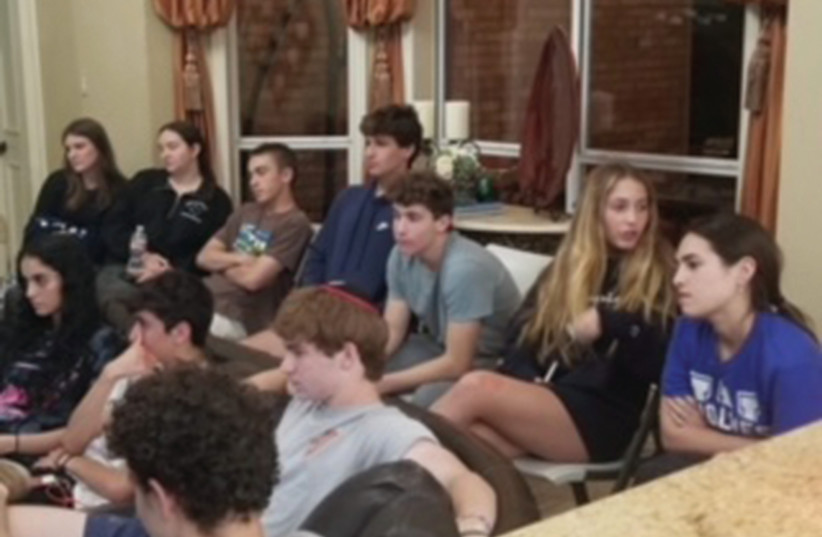There is a story going around about a 1940 report on school discipline that cited gum-chewing, littering and making noise in class as the most worrisome problems faced then. The report has been proven to be false. However, it is hard to imagine that the issues facing college students today (safe sex, gun violence, sexual violence, alcohol and drug awareness, mental health issues and suicide, cyberbullying, identity theft, eating disorders, racism, and so on) were quite as bad in the 1940s. To my kids’ disbelief, I wasn’t around then.
I did, however, attend college in the 1990s and much has changed since then. One thing came up recently. In college, I publicly identified as a Jew and never had a problem. Not one. Of course, there was antisemitism then – it is called the eternal hatred for a reason – but it was almost completely underground.
No longer. American campuses are now hotbeds of antisemitism. A survey from August 2021 by the organization Alums for Campus Fairness (ACF) found that almost four out of five recent or present Jewish college students have either experienced or heard firsthand about a fellow student making offensive or threatening [antisemitic] comments in-person. A separate report by Hillel International and the ADL found that 32% of present college students surveyed reported personally experiencing antisemitism directed at them and an additional 31% reported witnessing antisemitism that was not directed to them.
Even Jewish professors have problems: In one example, in early 2022, six professors from the City University of New York brought a civil rights lawsuit against their own union, the Professional Staff Congress (PSC), calling it antisemitic, anti-Jewish and anti-Israel.
The effects go beyond its direct victims: Almost seven out of 10 students surveyed by the ACF said that they avoid certain places, events, or situations because of their Jewish identity. Indeed, in February 2022, a bipartisan group of 39 members of Congress wrote to the Department of Education’s Office for Civil Rights (OCR) out of concern, summarizing that “This wave of antisemitism has had a detrimental impact at many American colleges and universities.”

On the whole, college administrations have been slow to respond. In March, Forbes ran a story on the subject, “How Universities Continue to Turn a Blind Eye Toward Campus Anti-Semitism.” The title says it all.
Indeed, unchecked antisemitism on campus is bullying more and more Jewish students into hiding their Jewishness. Many avoiding Jewish events. Some are hesitant to tell others they are Jewish.
How are Jewish groups dealing with it?
Thankfully, Jewish groups across North America are getting more active on the issue. Hillel International is now working with the ADL on numerous campus initiatives. A new student-run Jewish organization, Jewish on Campus (JOC), founded in 2020, is focused on fighting – and helping students fight – antisemitism on campus.
Still, many people are nervous. In fact, parents in Plano, Texas, were so concerned about what their soon-to-be-college-bound kids would encounter on campus this coming fall that they approached the Dallas Area Torah Association (DATA) to do something about it.
One of the parents explained to me that “most of these kids have grown up in highly diverse and tolerant schools, with many Jews. They haven’t experienced antisemitism. On campus, they are stepping out of their little Jewish bubbles – and will largely be on their own. We thought they could benefit from some extra preparation.”
“This is the first time that I’ve seen parents worried – actually worried – about their kids going to college. They don’t know what to tell the kids: Wear the Star of David necklace or not? Attend the pro-Israel rally or avoid it?” says Rabbi Eli Nissel of DATA, who created the program with their international partner, Olami.
“This is the first time that I’ve seen parents worried – actually worried – about their kids going to college."
Rabbi Eli Nissel
Roughly 20 high school seniors participated. The course introduced students to the resources on their campus and gave them confidence moving forward. Students met once a week for three weeks. Subjects included Jewish pride, how to fight BDS and other anti-Israel propaganda, the roots of antisemitism and how to get involved on campus. Feedback from students and parents was exceptional.
Word has gotten out about the success of the program. Shuls, federations and youth groups around the US are already discussing plans for importing the Texas program or running their own next year.
It’s a sad commentary on the state of Jewish life in America in the 21st century that we need to prepare our kids for the antisemitism that they are – according to the statistics – likely to encounter on campus. But does anyone doubt that we need to?
The writer is an experienced Jewish educator, licensed Israeli tour guide and author of Why Be Jewish? (Mosaica Press).
